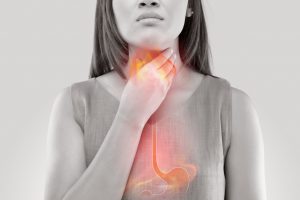Be sure to check out this month’s LiveStrong.com blog post featuring Dr. Berookim on what you need to know about fasting. People choose to fast for any number of reasons — sometimes religious, sometimes health-related. While you might think that going without food could not cause digestive upset, many people do experience the uncomfortable symptoms of acid reflux while fasting & why fasting can aggravate reflux. There’s no doubt that the practice of fasting can have many benefits, both spiritual and physical, but one unfortunate side effect is that it changes the balance of acid in the stomach. This can lead to reflux, says Peyton Berookim, MD, a gastroenterologist with the Gastroenterology Institute of Southern California in Beverly Hills. “When there are no contents or food in the stomach for it to break down, such as when one is fasting, stomach acid levels can start to increase,” says Dr. Berookim. “But if there’s no food in the stomach to ‘soak up’ the acid, this can result in harmful acid buildup that can cause epigastric pain, discomfort (heartburn) and regurgitation of the acid into the esophagus (acid reflux).”
Click here to read more.



